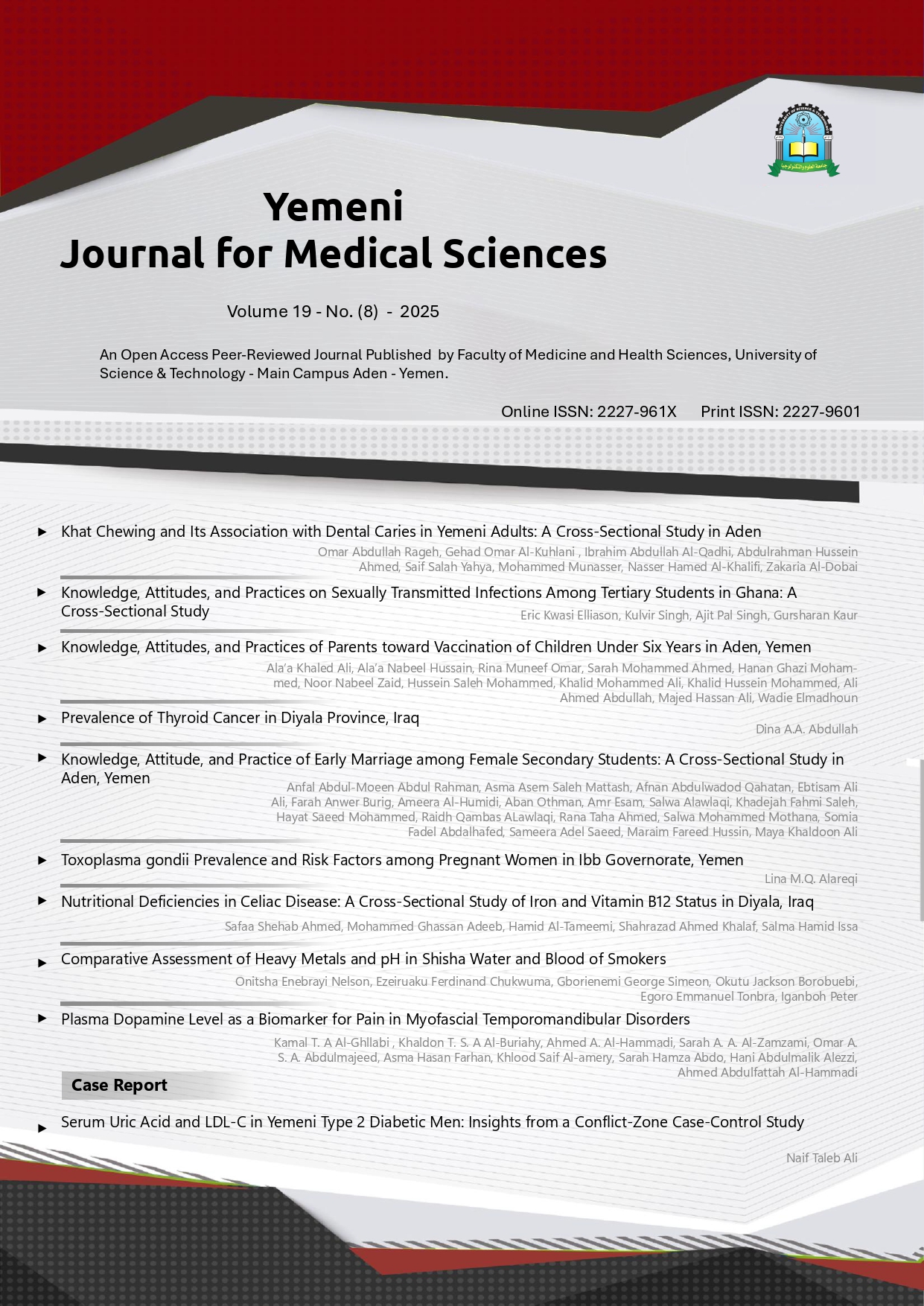Knowledge, Attitudes, and Practices of Parents toward Vaccination of Children Under Six Years in Aden, Yemen
##plugins.themes.bootstrap3.article.main##
Abstract
Background: Vaccine hesitancy has emerged as a growing public health concern globally, particularly in low-resource and conflict-affected settings such as Yemen. Caregivers' knowledge, attitudes, and practices (KAP) play a crucial role in childhood immunization uptake. Objective: This case report aimed to present a case of uterine perforation and bowel prolapse following an unsafe induced abortion.
Objective: This study aimed to assess caregivers’ KAP toward routine childhood vaccination in Aden, Yemen, and identify barriers influencing vaccination decisions.
Methods: A descriptive, cross-sectional study was conducted in six districts of Aden from April 23 to May 20, 2025. A total of 277 participants were selected using simple random sampling. Data were collected using a validated, structured questionnaire and analyzed with SPSS version 26. Descriptive statistics and Chi-square tests were used to assess associations between variables.
Results: Of the 277 participants, 88.45% reported vaccinating their children. Higher educational level (p = 0.034) and better knowledge of vaccine-related symptoms (p < 0.001) were significantly associated with vaccination uptake. No significant association was found between caregiver age and vaccination status (p = 0.433). Fever (40.2%) was the most common post-vaccination symptom. While most caregivers did not report specific barriers, fear of unfamiliar vaccination campaigns was the most cited concern.
Conclusion: the findings highlight a strong link between caregivers' education and knowledge with vaccine acceptance. Addressing misinformation and promoting community-specific education are critical to improving immunization rates in Aden.
##plugins.themes.bootstrap3.article.details##
Vaccine Hesitancy, Aden, Yemen, Vaccination

This work is licensed under a Creative Commons Attribution 4.0 International License.
YJMS publishes Open Access articles under the Creative Commons Attribution (CC BY) license. If author(s) submit their manuscript for consideration by YJMS, they agree to have the CC BY license applied to their work, which means that it may be reused in any form provided that the author(s) and the journal are properly cited. Under this license, author(s) also preserve the right of reusing the content of their manuscript provided that they cite the YJMS.








